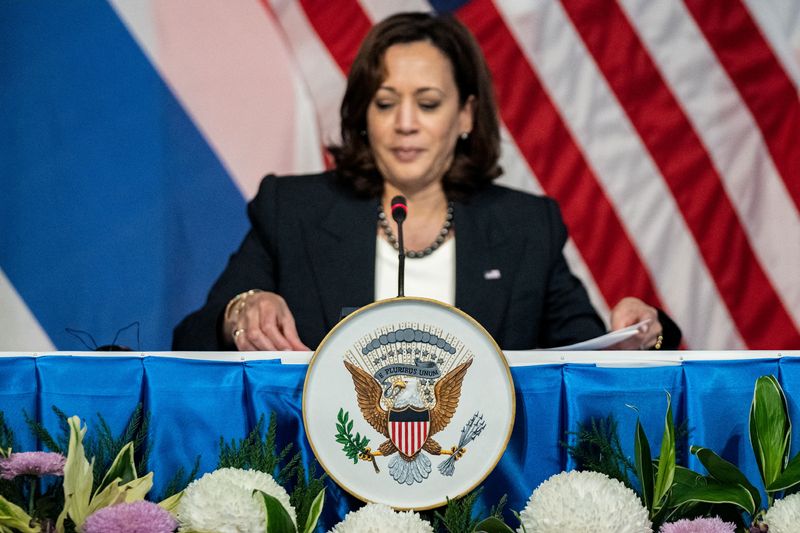Why does the US want to cooperate with the Philippines in the military sphere?
2022.11.20 06:38
[ad_1]

Why does the US want to cooperate with the Philippines in the military sphere?
Budrigannews.com – US Vice President Kamala Harris visited the Philippines this week in the Biden administration’s latest high-level engagement, becoming an increasingly important strategic partner as tensions with China rise over the rise of America’s oldest Asian ally and Taiwan.
The Philippines was a former U.S. colony and became an ally of the U.S. Treaty 5 years after independence in 1951. During the Cold War, it was home to some of America’s largest overseas bases, facilities essential to the US wars in South Korea and Vietnam. Filipino nationalism forced them to drive them out to Washington in the 1990s, but in recent years allies have been cooperating on counterterrorism and responding to growing Chinese military pressure in the South China Sea, which the Philippines claims to be a rival.
Today, due to its geography, the Philippines is at the heart of a corresponding US plan to thwart China’s attack on Taiwan, an autonomous island claimed to be owned by China.
Manila’s ambassador to Washington, Jose Manuel Romuardes, told Reuters that Harris had been invited to meet with President Ferdinand Marcos Jr.
Harris is also planning a very symbolic stop in Palawan, the Philippine Islands in the South China Sea, to show our support for its allies.
Of the U.S. treaty allies in the Indo-Pacific – Australia, South Korea, Japan, the Philippines and Thailand – the Philippines is only 200 km (120 miles) from Taiwan, and the northernmost land is Luzon.
Experts like Randall Shriver, who served as a senior Pentagon official in East Asia in the Trump administration, said Luzon has a great interest in the U.S. military, particularly as a potential location for rocket, missile and artillery systems that could be used against Taiwan’s amphibious invasion.
He said that after a six-year period of difficult relations between President Rodrigo Duterte, who has called for closer ties with China, the political environment for expanding military access under Marcos has improved.
Washington-August looked closely at Marcos, and Harris’ visit came after two meetings between President Joe Biden and Marcos and Secretary of State Antony Blinken’s visit to Manila.
The two sides are advancing an enhanced defense cooperation agreement that dates back to President Obama and has waned under Duterte. The EDCA allows access to military bases in the Philippines for joint training, pre-deployment of equipment, the construction of facilities such as runways, fuel storage and military housing, but not a permanent presence.
It remains unclear to what extent it will allow the Philippines to use its territory to defend Taiwan. Romualdes, the Washington ambassador and a relative of Marcos, said on the 9th that he would only allow US troops to use the base in the event of a conflict in Taiwan.”””
The United States proposes to add another 5 EDCA sites to the existing 5 EDCA sites. Gregory Pauling, a Southeast Asia expert at the Center for Strategic and International Studies in Washington, said Harris’s trip could lead to an agreed announcement.
Polling believes that given the Philippines’ proximity to the island and its treaty obligations to the United States, it is very difficult for the Philippines to remain neutral in the Taiwan dispute. That makes Taiwan the most likely destination for refugees, and about 150,000 Filipinos living on the island are endangered by Chinese attacks.
“They have a promise to the Americans under the alliance,” Pauling said. “So if they want American support in the South China Sea, Americans will expect Philippine support for Taiwan.””
Washington will seek assurances about access next year or two, given growing concerns about a possible attack on Taiwan, but a clear plan for an emergency in Taiwan is very sensitive to Manila, Shriver said.
Polling said it was important to provide adequate funding to support the modernization of the military, which had long been neglected in Manila. Washington recently announced 1100 million dollars in foreign military funding and 6 66.5 million dollars for EDCA sites, but the amount is less than what Washington sent to the Middle East and Ukraine.
“The second Philippine demand is a continuation of a clear commitment to protect the Filipinos in the South China Sea,” Pauling said. “They know this rhetorically, but the question on both sides is, do you have it functionally? If there was a Chinese attack on a Philippine base in the South China Sea tomorrow, can Americans really do something about it? And this is much less clear, it is another reason why edca is so important.”
[ad_2]








